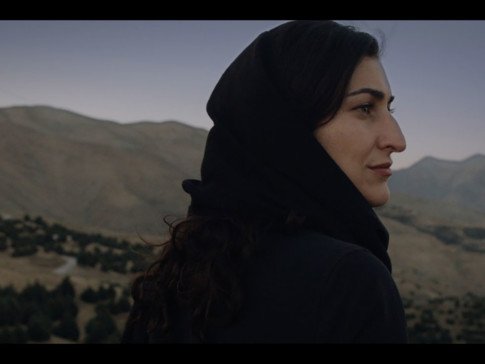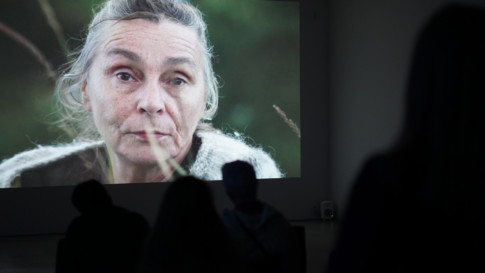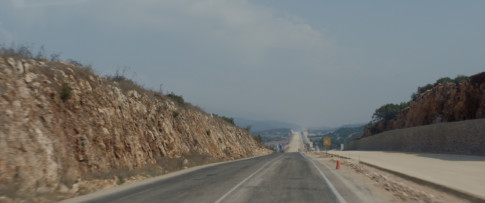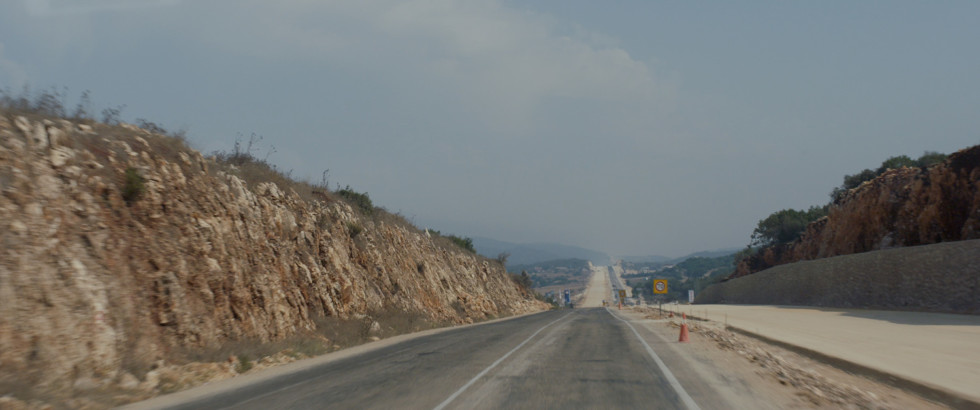
Éric Baudelaire, Also Known As Jihadi (film still), 2017 © Éric Baudelaire
The Film Club autumn 2018
The Film Club 2018 autumn programme
Friday 7 September, at 18.00
Preview of Marcus Lindeen’s award-winning film The Raft + conversation
Film: ”The Raft” (2018) by Marcus Lindeen, 97 min
Conversation: Marcus Lindeen and Catrin Lundqvist, curator Moderna Museet
Friday 26 October, at 18.00
”SCUM Manifesto” and ”Maso et Miso vont en bateau”+ conversation
Films: ”SCUM Manifesto” (1976) by Carole Roussopoulos and Delphine Seyrig, 27:25 min and ”Maso et Miso vont en bateau” (1976) by Carole Roussopoulos, Ioana Wieder, Delphine Seyrig and Nadja Ringart (Les Insoumuses), 55 min
Conversation: Giovanna Zapperi, curator and Petra Bauer, Kungl. Konsthögskolan.
Friday 16 November, at 18.00
”It’s a Fucking Man’s World”
The Swedish Archive for Queer Moving Images presents an evening of film, conversation and performance
Films: ”GENDER QUEER – Qu’est-ce que c’est?” (2005) by Del LaGrace Volcano, 5:50 min, ”Vedergällning” [Retaliation] (2007) by Hanna Ljungh, 4:46 min, ”MAN” (2016) by Maja Borg, 13 min, ”Manhood” (1999) by Mia Engberg, 10 min, ”YʼALL BETTER QUIET DOWN! (HALLÅ, KAN NI LUGNA NER ER!)” (2013) by Conny Karlsson Lundgren, 9 min, ”Robert Frank” (2013) by Lasse Långström, 5:30 min, ”Fält” (2016) by Sara Parkman and Edith Hammar, 3:16 min.
Spoken work performance by Del LaGrace Volcano. Conversation: participating film makers and Aleksa Lundberg, actor and journalist.
Friday 7 December, at 18.00
”Also Known As Jihadi” + conversation
Film: ”Also Known As Jihadi” (2017) by Éric Baudelaire, 101 min.
Conversation: Éric Baudelaire and Kim West, Kungl. Konsthögskolan.
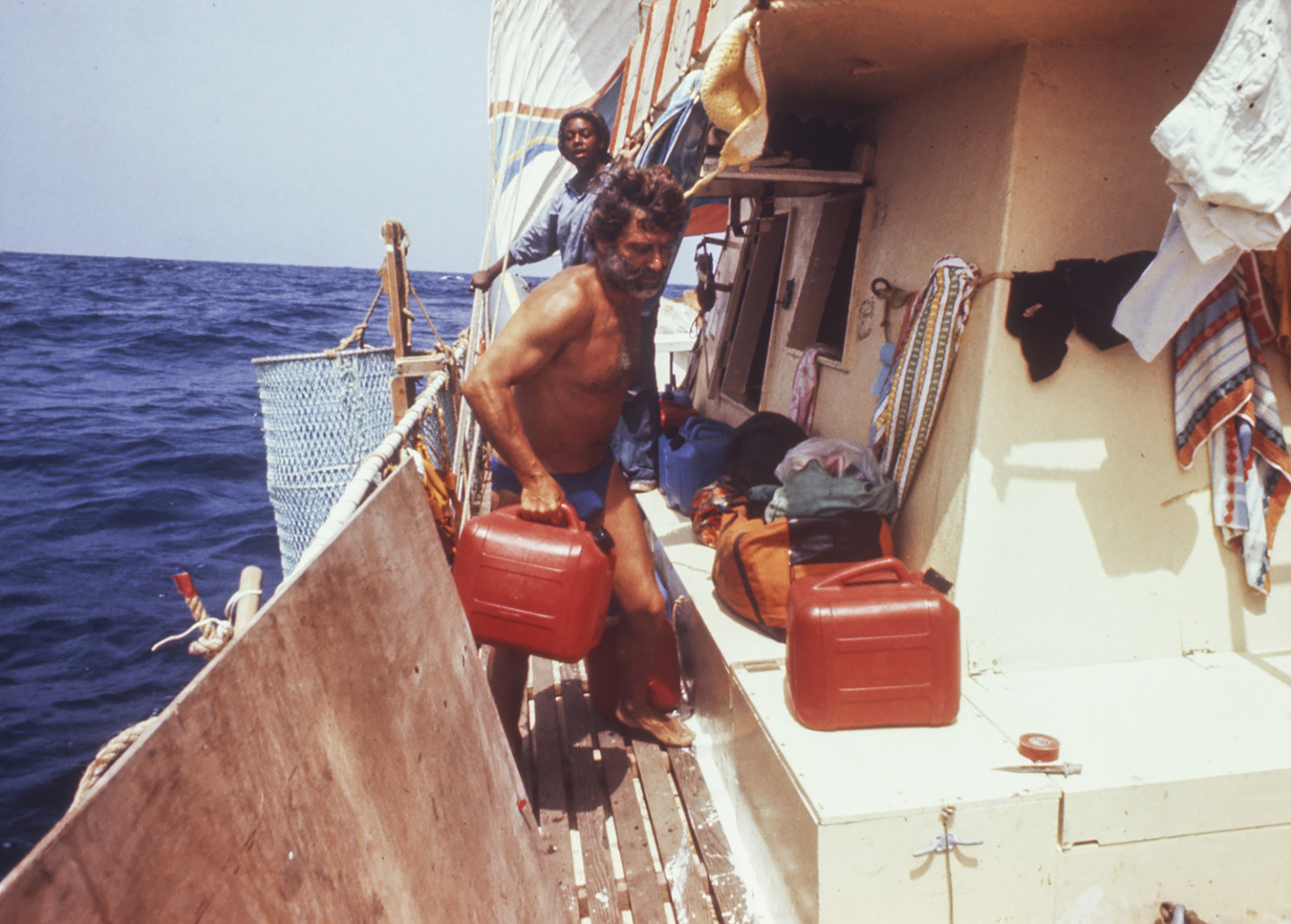
The Raft (2018)
Marcus Lindeen
Sverige, 97 min
Preview of Marcus Lindeen’s award-winning film The Raft!
Date: Friday 7 September 2018
Time: at 18.00
Place: the Auditorium, floor 2
Language: English, Swedish subtitles
Price: 100 SEK, 80 SEK for Friends of Moderna Museet
Tickets: Buy Ticket
Conversation after the film between Marcus Lindeen and Catrin Lundqvist.
The film bar outside the Auditorium is open at 17.30–18. The Moderna Bar will be open after the film screening. Student discount in the bar.
In association with Folkets Bio.
The Raft (2018)
Marcus Lindeen
Sweden, 97 min
In 1973, five men and six women drifted across the Atlantic on a raft as part of a scientific experiment studying the sociology of violence, aggression and sexual attraction in human behavior. Although the project became known in the press as ‘The Sex Raft’, nobody expected what ultimately took place on that three month journey.
Through extraordinary archive material and a reunion of the surviving members of the expedition on a full scale replica of the raft, this film tells the hidden story behind what has been described as ’one of the strangest group experiments of all time’.
The Raft won the main award at CPH:DOX film festival, one of Europe’s leading non-fiction showcases.
Marcus Lindeen
Marcus Lindeen is a writer and director. He made his debut with documentary feature Regretters, which won the prestigious Prix Europa for Best European Documentary in Berlin, the Swedish Academy Awards (Guldbagge) and the Swedish Emmy for Best Documentary in 2011.
His second film was fiction feature, Glorious Accidents, that premiered at The Venice Film Festival, winning the prize for Best Medium-Length film. Lindeen’s theatre work has been produced and presented at Sweden’s National Theatre (Dramaten), The National Theatre in Oslo and The Schaubühne in Berlin. His latest short film Dear Director picked up a prize when it premiered at The Locarno Film Festival in 2015. In January 2017 he exhibited the art installation The Acali Experiment at Centre Pompidou in Paris. The installation was also presented as part of the CPH:DOX film festival in Copenhagen, where his feature documentary film The Raft premiered in 2018. The film won the main award of the festival.
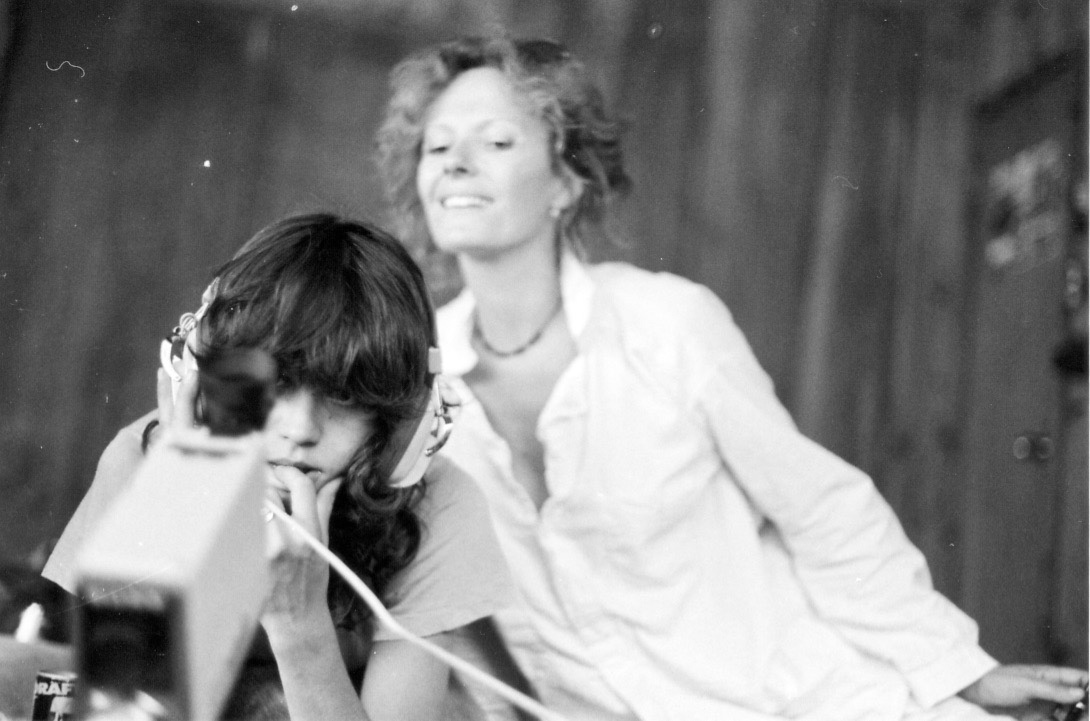
Maso et Miso vont en bateau (1976) and SCUM Manifesto (1976)
Date: Friday 26 October 2018
Time: at 18.00
Place: the Cinema, floor 2
Language: French, English subtitles
Price: 65 SEK, 45 SEK for Friends of Moderna Museet
Tickets: Buy Ticket
Conversation after the film between Giovanna Zapperi, curator and Petra Bauer, Kungl. Konsthögskolan.
The Moderna Bar will be open after the film screening. Student discount in the bar.
In association with Kungl. Konsthögskolan.
The films are distributed by Centre audiovisuel Simone de Beauvoir.
Maso et Miso vont en bateau (1976) och SCUM Manifesto (1976)
Both videos are exemplary of a disobedient media practice combining humour, social critique and the emergence of a feminist gaze.
SCUM Manifesto (1976)
Carole Roussopoulos and Delphine Seyrig
France, 27:25 min, s/v
SCUM Manifesto is a video-manifesto based on a reading of the famous text written by Valerie Solanas in 1967. Seyrig and Roussopoulos face one another, sitting on a table surrounded by books: Seyrig is dictating the text, while Roussopoulos is typing it with a typewriter. On the table, a TV shows the daily news broadcasting images of war and violence.
Maso et Miso vont en bateau (1976)
Les Insoumuses (Carole Roussopoulos, Ioana Wieder, Delphine Seyrig, Nadja Ringart)
France, 55 min, s/v
”Maso et Miso vont en bateau” is based on a French TV broadcast where Secretary of State for Women’s Affairs Françoise Giroud is confronted to a series of notorious misogynists, but instead of opposing them, she engages with them in sexist jokes, thus acting as a masochist and a misogynist. The video manipulates the show’s original recording through a montage in which written texts, a voice over, freeze-frames and a number of footages interfere in the televisual narrative, in order to expose its misogynist overtones and to reclaim for an autonomous female voice.
On the film makers Les Insoumuses
Les Insoumuses [Disobedient Muses] is a feminist video collective involving Carole Roussopoulos, Nadja Ringart, Delphine Seyrig, and Ioana Wieder.
Nadja Ringart is a video maker and feminist activist based in Paris.
Carole Roussopoulos (1945–2009) is a video maker and founder of the militant video collective Video Out with her husband Paul Roussopoulos. Throughout the 1970s and 1980s she documents a series of struggles, particularly involving women; for exmpale, women’s strikes across France’s factories, sex workers struggles, demonstrations for abortion right and against gender violence, debates and demonstrations involving the nascent LGBTQ movement (FAHR: Front action homosexuelle révolutionaire) and migrant workers’ strikes. She is one of the co-founders, in 1982, of Centre audiovisuel Simone de Beauvoir in Paris.
Delphine Seyrig (1932–1990) was an actress, a film director, a feminist activist, and co-founder of the Centre audiovisuel Simone de Beauvoir in Paris. Mostly known as one of the leading actresses of 1960s–1970s French cinema, Seyrig became a media and a feminist activist during the 1970s. She became known to the public as the leading female character of Alain Resnais’s film ”L’année dernière à Marienbad” (1961) where she incarnates an idealized femininity that she has later tried to unpack by using recitation as a site for the exploration of female identity and roles, both in film and in theatre. During the 1970s and 1980s, parallel to her feminist engagement, she worked with female directors such as Marguerite Duras, Chantal Akerman and Ulrike Ottinger, who allowed her to create female roles that developed on her personal inclinations. Parallel to her feminist engagement, she starts to produce her own videos, alone or with other women videomakers. She is the author of ”Sois belle et tais-toi” [Be beautiful and shut up], 1976, an exploration of the film industry’s sexism.
Ioana Wieder is an author, translator, video maker and feminist activist living in Paris. She is one of the co-founders, in 1982, of Centre audiovisuel Simone de Beauvoir.
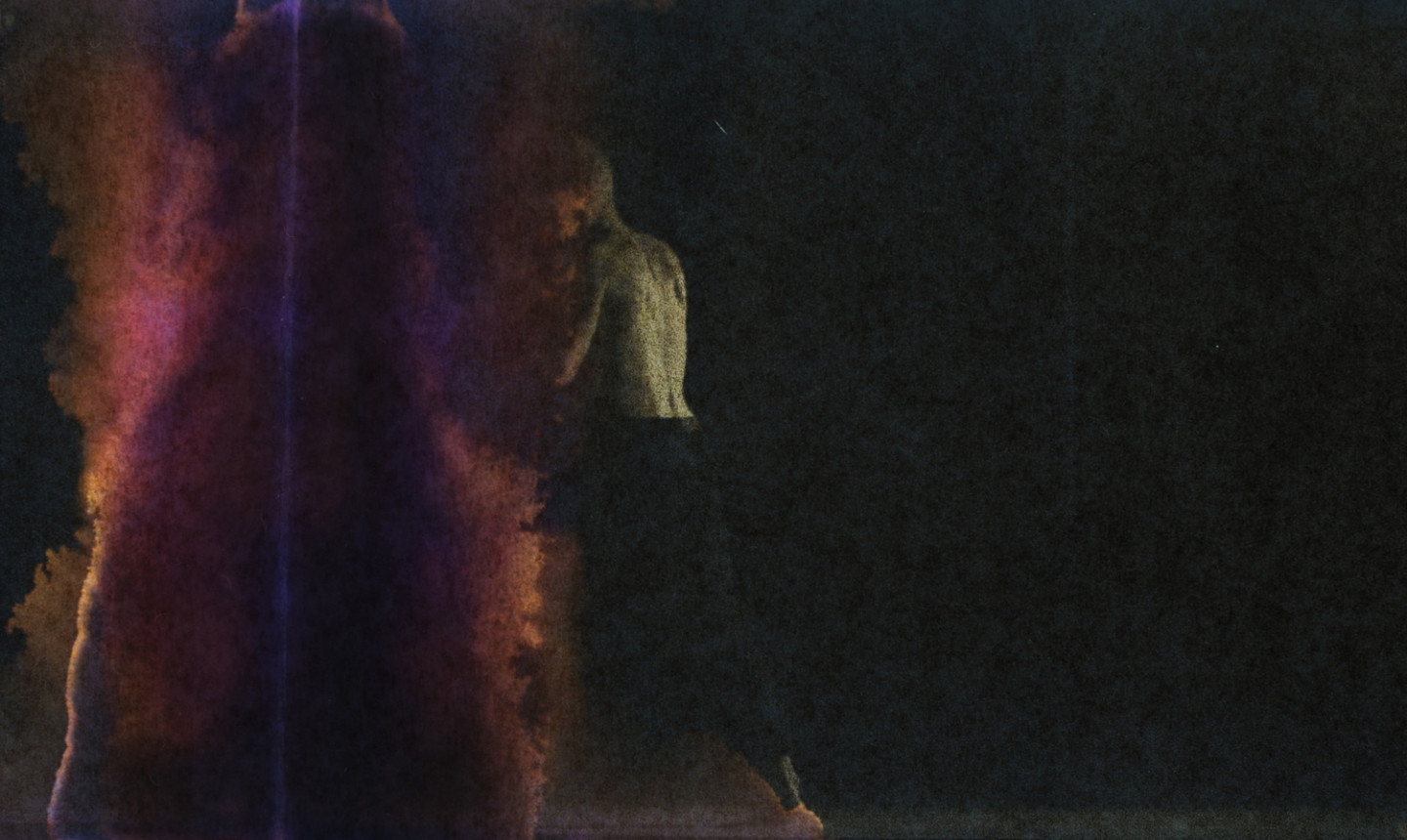
”It’s a Fucking Man’s World”
The Swedish Archive for Queer Moving Images presents an evening of film, conversation and performance
Date: Friday 16 November 2018
Time: at 18.00
Place: the Auditorium, floor 2
Language: Swedish, English
Price: 65 SEK, 45 SEK for Friends of Moderna Museet
Tickets: Buy Ticket
Film programme:
”GENDER QUEER – Qu’est-ce que c’est?” (2005) av Del LaGrace Volcano, 5:50 min
”Vedergällning” (2007) av Hanna Ljungh, 4:46 min
”MAN” (2016) av Maja Borg, 13 min
”Manhood” (1999) av Mia Engberg, 10 min
”YʼALL BETTER QUIET DOWN! (HALLÅ, KAN NI LUGNA NER ER!)” (2013) av Conny Karlsson Lundgren, 9 min
”Robert Frank” (2013) av Lasse Långström, 5:30 min
”Fält” (2016) av Sara Parkman och Edith Hammar, 3:16 min.
The filmprogram starts with a spoken work performance, consisting of 3 short spoken work pieces performed and visualized by Del LaGrace Volcano: ”Talking Queer: Gender Optional + Bodies of Resistance + A Spectacular Specimen”.
Conversation after the film between the film makers and Aleksa Lundberg, actor and journalist.
Filmbaren outside the Auditorium is open at 17.30–18.
The Moderna Bar will be open after the film screening. Student discount in the bar.
Curator: Anna Linder, Artistic director SAQMI
In association with The Swedish Archive for Queer Moving Images
On the films
GENDER QUEER – Qu’est-ce que c’est?
Del LaGrace Volcano (with Cara Lavan) 2005, 5:50 min
Del LaGrace Volcano ventures into the city streets to ask people what makes one a man or woman.
Del LaGrace Volcano (born 1957 in California) is one of the instigators of polymorphous perverse queer culture. A formally trained photographer, Volcano’s work includes installation, performance, film. Works that interrogate the performance of gender on several levels, especially the performance of masculinity and femininity.
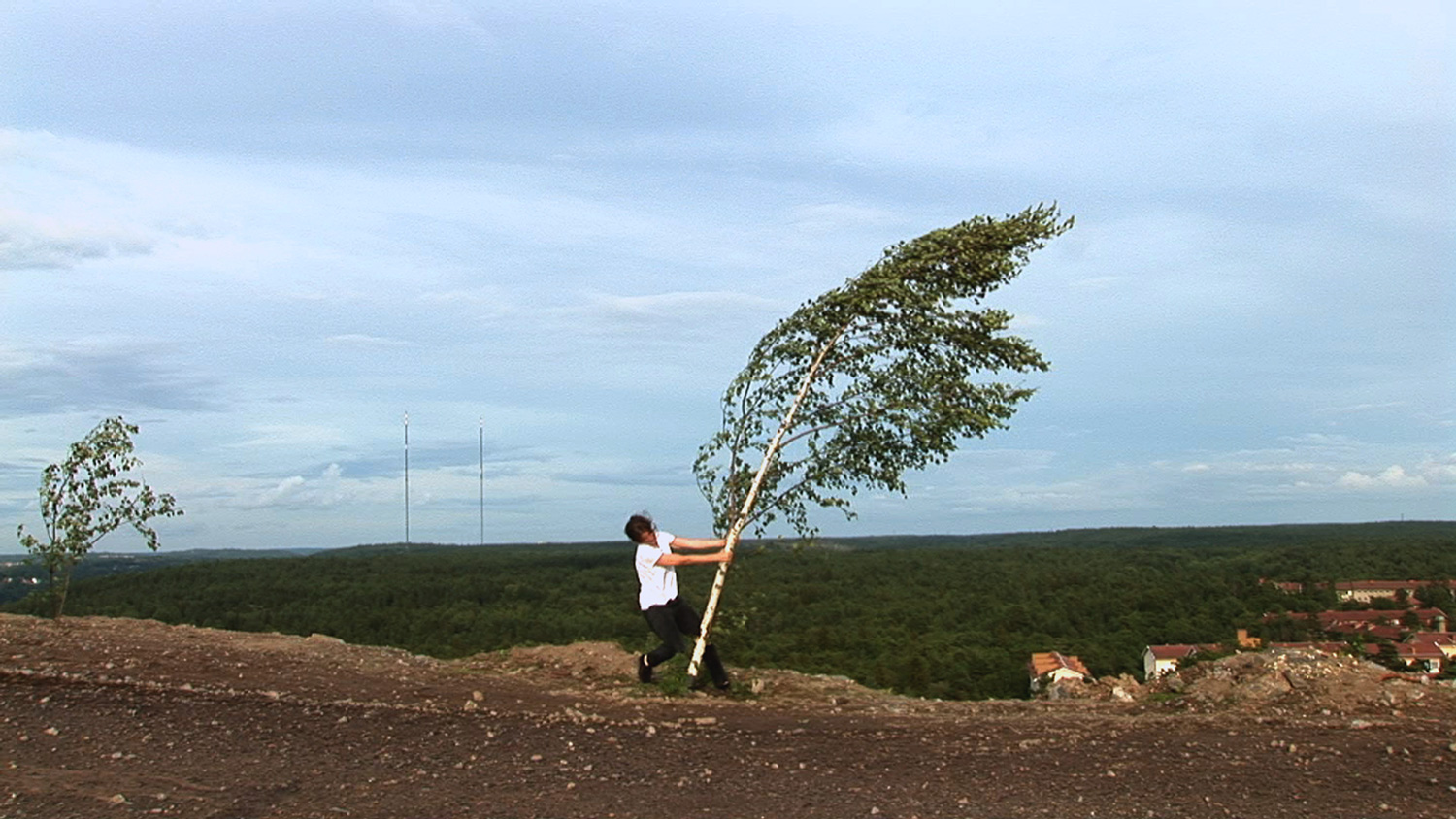
Vedergällning [Retaliation]
Hanna Ljungh, 2007, 4:46 min
“Retaliation” is a filmed performance based on a scene from the film “The Virgin Spring” (1960) by Ingmar Bergman. The piece is a revolt and a homage. Retaliation takes a fictional action and studies it to find new meaning. The video is a play with strength and weakness where the woman takes on a traditionally male role in trying her raw strength and getting rid of her frustration by hitting and breaking something.
Hanna Ljungh (born 1974) works with film, photography, sculpture and installation. Ljungh’s work often circles around dominant concepts of interpretation and the relation to non human materials and life forms. She lives and works in Stockholm. Ljungh has an education from Parsons School of Design, New York and Konstfack, Stockholm. Recently her work has been shown Trondheim Konsthall, ANNAELLEGALLERY i Stockholm, Hippolyte Studio and HIAP in Helsinki, The Swedish Cultural Institute in Paris and Pohang Museum of Art i South Korea.
MAN
Maja Borg, 2016, 13 min
“MAN” is an expansion of gender and language, a journey of physical transformation through the wilderness of pregnancy, echoed by the sole remaining recording of Virginia Woolf’s voice.
The film is an experimental expression of form – hand-processed super 8mm film combined with watercolour-negative animation; timelapses of a pregnancy shot frame by frame, day by day; bookended by a series of self-portraits where the filmmaker is satirising her own use of particular attire, generally read as masculine, becoming revelatory when posed in the context of the pregnant body.
For a decade Maja Borg (born 1982) has been exploring the semantics of visual language in her work, experimented with form to push content beyond the limits of established thought. She uses the deconstruction of language to dismantle other systems – be they political, sexual, economic or cultural. This is the second time that Borg draws on the essay “Craftsmanship” (1937) by Virginia Woolf, this time to deconstruct gender identity during her own pregnancy.
Manhood
Mia Engberg, 1999, 10 min
To be a woman and become a man when you live together with a dyke that might be a fag… What is manhood? Do you become a better man if you have experienced being a woman? A film about non-binary identity in San Francisco in the 1990’s. Made in a time when trans activism and queer theory had not yet reached Sweden.
Mia Engberg (born 1970) is a filmmaker and a researcher at Stockholm Uniarts. Among her works are the feature film “Belleville Baby”, receiving a Guldbagge Award for best documentary in 2013, and the feminist art project “Dirty Diaries – 12 shorts of feminist porn” (2009). She is currently running a 4 year research project, “The Visual Silence”, funded by The Swedish Research Council. Her next feature film “Lucky One” will premiere in spring 2019.
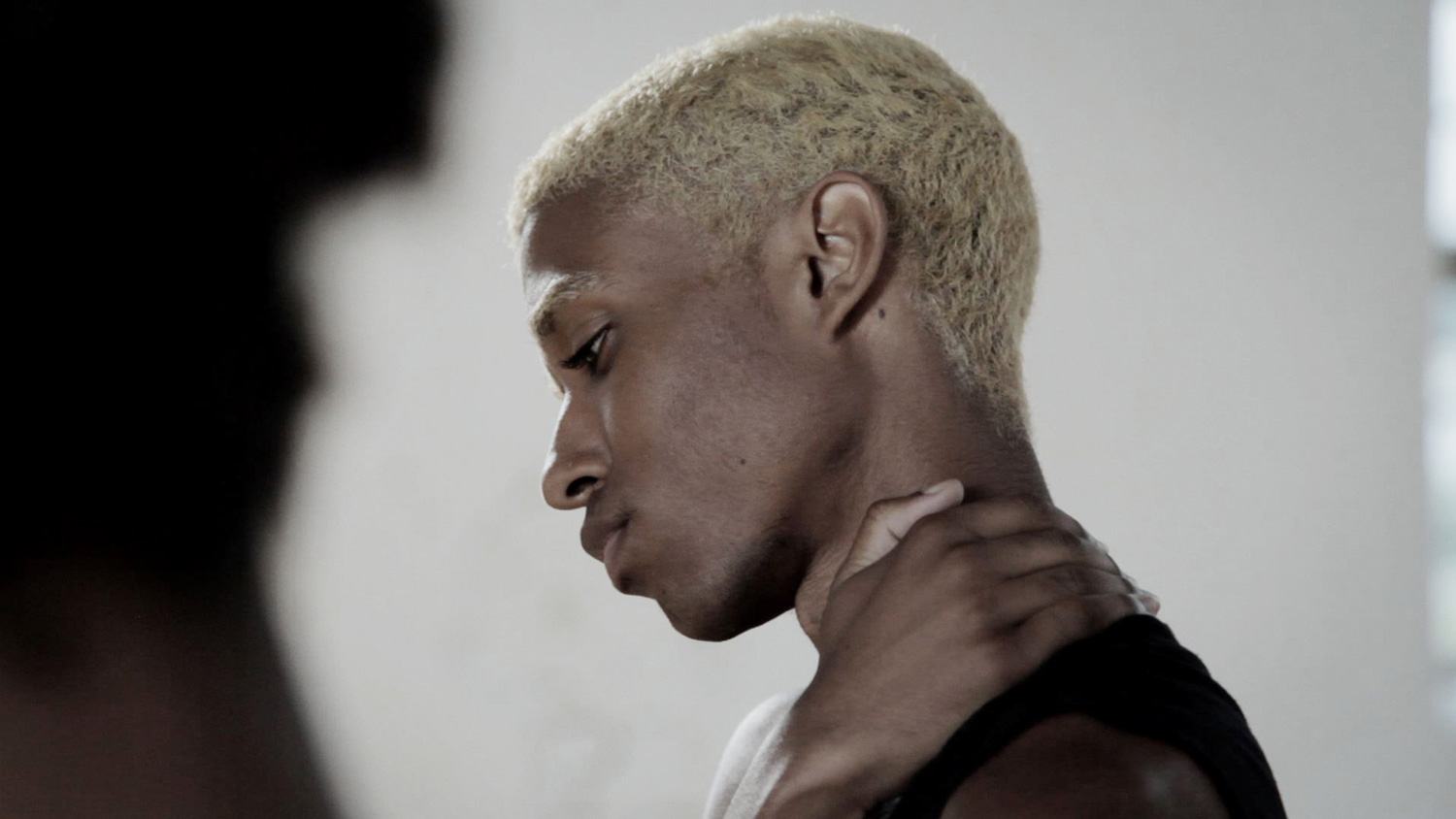
YʼALL BETTER QUIET DOWN! (HALLÅ, KAN NI LUGNA NER ER!)
Conny Karlsson Lundgren, 2016, 9 min
”I do not believe in a revolution, but you ought to!”
During the 1973 Christopher Street Day Parade, the transgender activist and Young Lord’s member Sylvia Rivera holds a powerful and defining speech in Washington Square Park, where she accuses a relatively new-formed LGBT-movement of being white, neoconservative, excluding, racist and transphobic. Rivera is thrown off the stage and after this event she leaves the political scene and New York City for 20 years. The short film “Y’all Better Quiet Down!/Hallå, kan ni lugna ner er!” is based on a transcription of Rivera’s speech. Together with the Swedish queer feminist theatre collective Kvalitetsteatern, and featured guests, a performative manifestation is created. The contemporary urgency in Rivera’s words is investigated, translated and taking shape through the bodies of the collective.
“Y’all Better Quiet Down!/Hallå, kan ni lugna ner er!” is an independent part of the work series “The Sylvia Fractions”. The work was made possible through the archive at The Center – New York City’s LGBT Community Center, with support from IASPIS, the Swedish Arts Grants Committee’s international programme for Visual and Applied Artists.
Conny Karlsson Lundgren (born 1974) is a visual artist currently based in Stockholm. He is fascinated by the ephemeral, seemingly temporary traces and moments that together form a larger context. Karlsson Lundgren holds an MFA in Fine Arts from Valand Academy in Gothenburg. During 2013 he participated in the IASPIS Studio Residency Program in Stockholm and 2014—2015 he was enrolled at the Van Eyck Post Academic Studio Research Program in Maastricht NL. In recent years his work has been exhibited in diverse contexts such as Moderna Museet Malmö, Extra City Kunsthal Antwerp, Gothenburg Art Museum, Kunsthall Nikolaj Copenhagen and TriBeCA Film Center NYC. He recently had solo exhibitions at Haninge Konsthall, Gallery Box Gothenburg and Kalmar Art Museum.
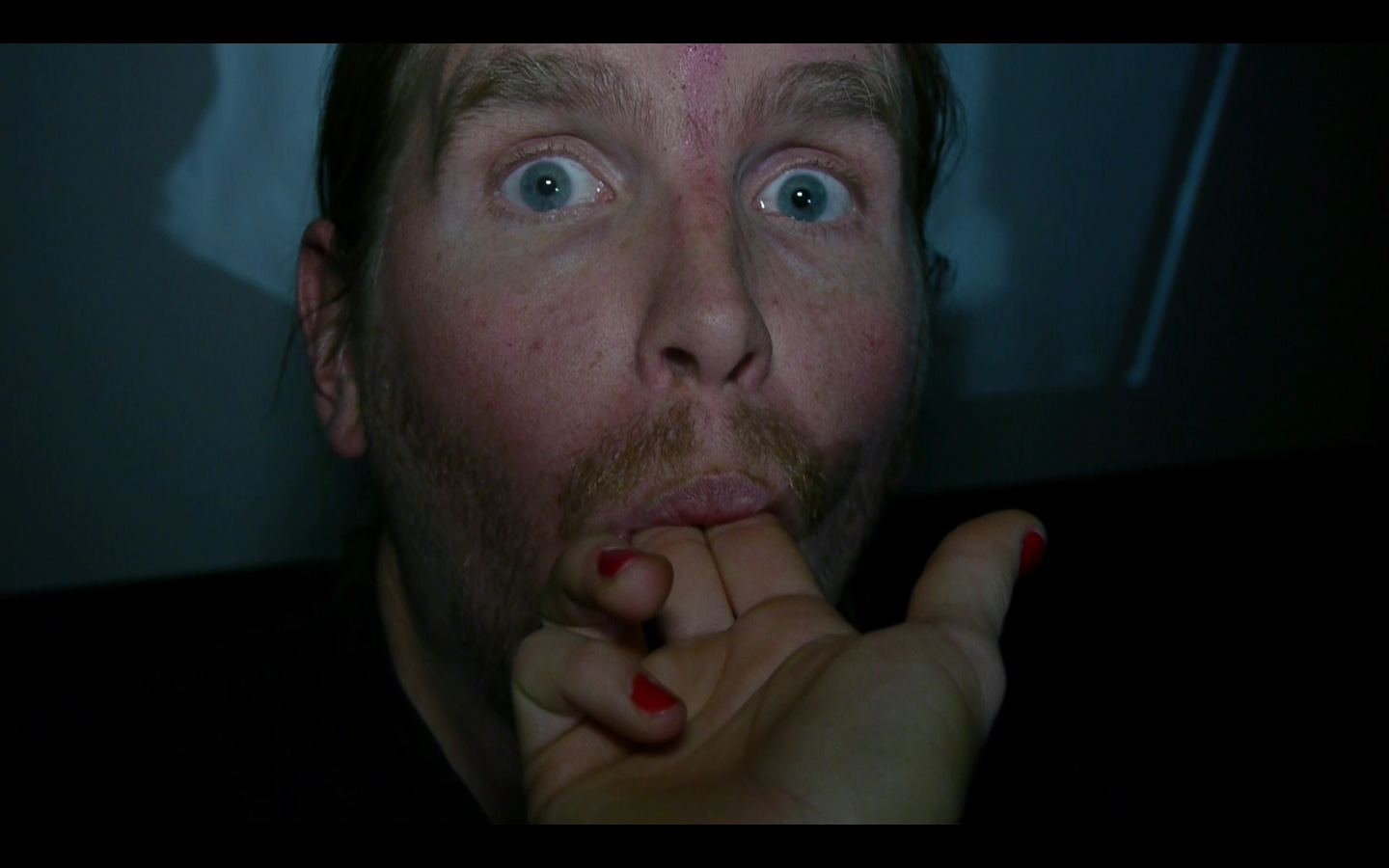
Robert Frank
Lasse Långström, 2013, 5:30 min
A film about why men have to be filled with something other than themselves, as well as a consideration of contemporary art and the male art professor.
Lasse Långström (born 1986) is a film director from Gothenburg who, together with his friends, works with awareness raising homoerotics, anarchist music and occult class struggle comedy. Amongst their past works are the award-winning spiritual yet dirty contemplation ”Vem ska knulla pappa?” [Who’s going to fuck Daddy?] (2017), the feature film ”Folkbildningsterror” (2014), the YouTube hit ”Gråt Allians av vårt hat“ [Weep Alliance from Our Hatered] (2010) and the short film “En kvinnas längtan” [Desire of a Woman] (2006).
Fält
Sara Parkman & Edith Hammar, 2016, 3:16 min
”The video itself is friendship, the body, communication, the home, the room, the security. That it’s fun with body, body is fun, it’s fun with friends, fun to ravage. About synchronized friendship and intuition. In spring 2016, Sara was in Berlin and Edith in Stockholm. We transmitted lots of obscure videos of ourselves via webcam. Maybe naked in a bathtub or strutting about with pink roses or dancing in a white polo shirt. Who knows. In any case, it felt close and fine and relevant in the sense of owning the space and oneself.”
Music: Sara Parkman, Hampus Norén. Video: Edith Hammar. Choreography: Karina Sarkissova.
Sara Parkman (born 1989) is a folk musician, composer, writer and artist from the north of Sweden. The last year Parkman have released two albums (Sara Parkmans Skog and Matriarkerna), one show (Fäboland) and composed music for theater and film (Sång till Välfärden, Nationens Hjärta, Amatörer and Kevlar).
Parkman has a BA in Swedish traditional music from the Royal College of Music in Stockholm, but has stated that the main experience in music comes from a vivid mix of people, places, traditions.
The last years Parkman collaborated with artists such Fever Ray, David Väyrynen, Bob Hund and institutions such Riksteatern, Dramaten and SVT. Parkman works a lot with old herding music as a feminist and queer artistic strategy, and lately she has been connecting the musical process with working relationally.
Edith Hammar (born 1984) has a Bachelor of Fine Arts from the Swedish Royal Institute of Art since spring 2017 and is currently living in Helsinki. As a visual artist they work with drawings as their primary expression. The drawings vary in materials and sizes, sometimes burned into wood and of course large ink pens on walls of galleries, homes and clubs. Thematically Hammar’s works exist in a suggestive parallel dimension with references to both paradises and reality.
On The Swedish Archive for Queer Moving Images
For the first time ever in Sweden The Swedish Archive for Queer Moving Images are compiling the history of queer moving images and storing it all in one place. A history that has been marginalized through oppression and self-censorship. Through methods such as documentation, interviews, archiving, screenings, presentations, workshops and discussions, the first platform of queer moving images in Sweden will be created.
More information on SAQMI’s website: SAQMI
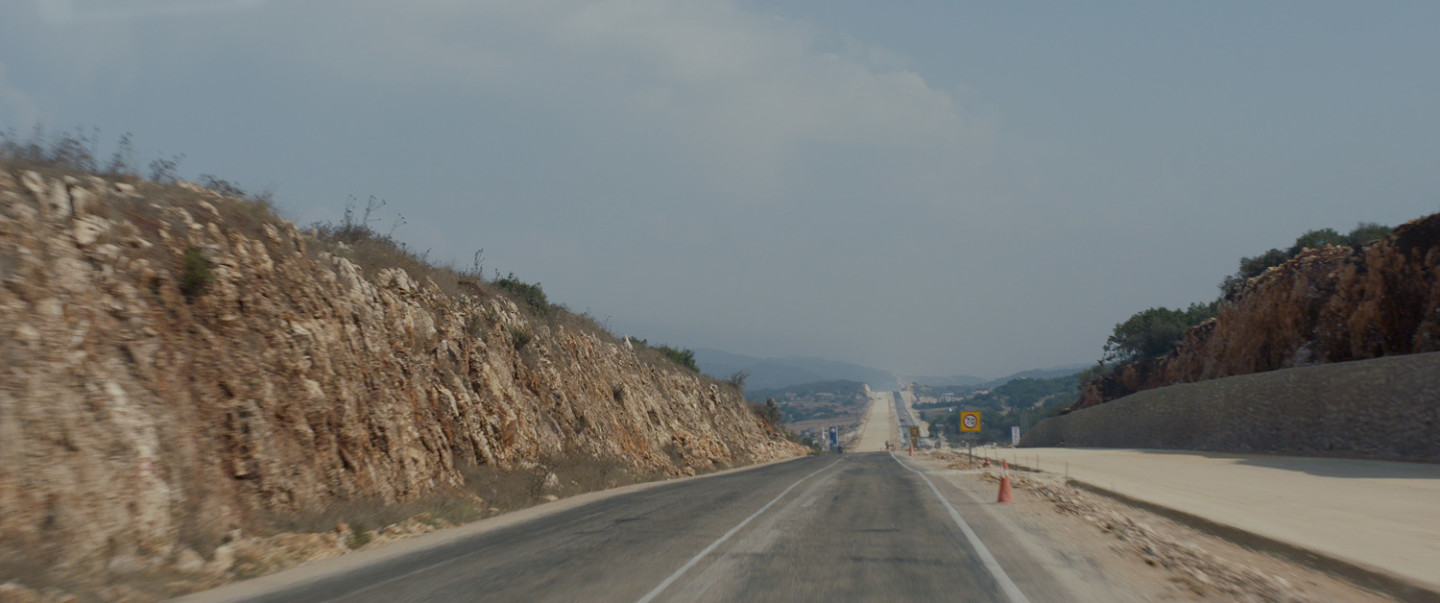
Also Known As Jihadi (2017)
Éric Baudelaire
France, 101 min.
Date: Friday 7 December 2018
Time: at 18.00
Place: the Cinema, floor 2
Language: French, English subtitles
Price: 65 SEK, 45 SEK for Friends of Moderna Museet
Tickets: Buy Ticket
Conversation after the film between Éric Baudelaire and Kim West, Kungl. Konsthögskolan.
The film bar outside the Auditorium is open after the film screening. Student discount in the bar.
In association with Kungl. Konsthögskolan
On Also Known As Jihadi (2017)
Éric Baudelaire
France, 101 min.
Fûkei means landscape in Japanese. Fûkeiron is a proposition: turn the camera 180 degrees to film not the subject of the film, but rather the landscapes that he has seen. Film the clinic where the subject was born in the Parisian suburb of Vitry, the buildings he grew up in, his high school and workplaces. Then, film the landscapes of his departure: Egypt, Turkey and the road to Aleppo where he joined the ranks of the al-Nusra Front in 2012. And then film his path home.
”Also Known As Jihadi” is a possible story of a man told through the places he traversed. A series of landscapes contextualized by extracts of judicial documents: police interrogations, wiretaps, surveillance reports… Together, they translate the filmmaker’s sense of loss in the face of the incomprehensible, a feeling coupled by the intuition that the incomprehensible must nonetheless have its reasons.
On Éric Baudelaire
Eric Baudelaire was born 1973 in Salt Lake City, USA. He lives and works in Paris, France. After training as a social scientist, Baudelaire established himself as a visual artist with a practice incorporating photography, printmaking and video, often focused on social and historical research, which he sees as an extension of his earlier work in political science. Since 2010, he has devoted himself more seriously to feature filmmaking.
His films ”Also Known As Jihadi” (2017), ”Letters to Max” (2014), ”The Ugly One” (2013) and ”The Anabasis of May” and ”Fusako Shigenobu, Masao Adachi, and 27 Years Without Images” (2011) have circulated widely in film festivals (FID Marseille, Locarno, Toronto, New York and Rotterdam film festivals). Baudelaire also integrates his films into broad exhibition projects incorporating prints, performance, publications, public programs and screenings, such as APRÈS at the Centre Pompidou, Paris, and The Secession Sessions at Kadist / Berkeley Art Museum, Bétonsalon, Paris, Bergen Kunsthall.
Baudelaire has had monographic exhibitions at the Witte de With, Rotterdam, the Fridericianum, Kassel, the Beirut Art Center, Gasworks, London, and the Hammer Museum in Los Angeles, and has participated in the 2017 Whitney Biennale, Sharjah Biennials 12 and 13, and the 2014 Yokohama Triennale. His work is in the collections of the Museum of Modern Art and the Whitney Museum of American Art in New York, the Reina Sofia Museum in Madrid, the MACBA in Barcelona, the Centre Pompidou in Paris, and M+ in Hong Kong.
The Film Club
Film has had a prominent position at the Museum since the start. The Moderna Museet Film Club has existed since the Museum opened in 1958, showing everything from children’s matinees to the latest experimental art films. In 2018, the Film Club will present films on the boundary between art and documentary. Often, the artist or director will take part in discussions after the screenings.
Previous programme
The Film Club editorial team
Lena Essling, curator, Catrin Lundqvist, curator, Jo Widoff, curator.
Contact
The autumn programme was compiled in collaboration with The Swedish Archive for Queer Moving Images, Folkets Bio and Kungl. Konsthögskolan.

